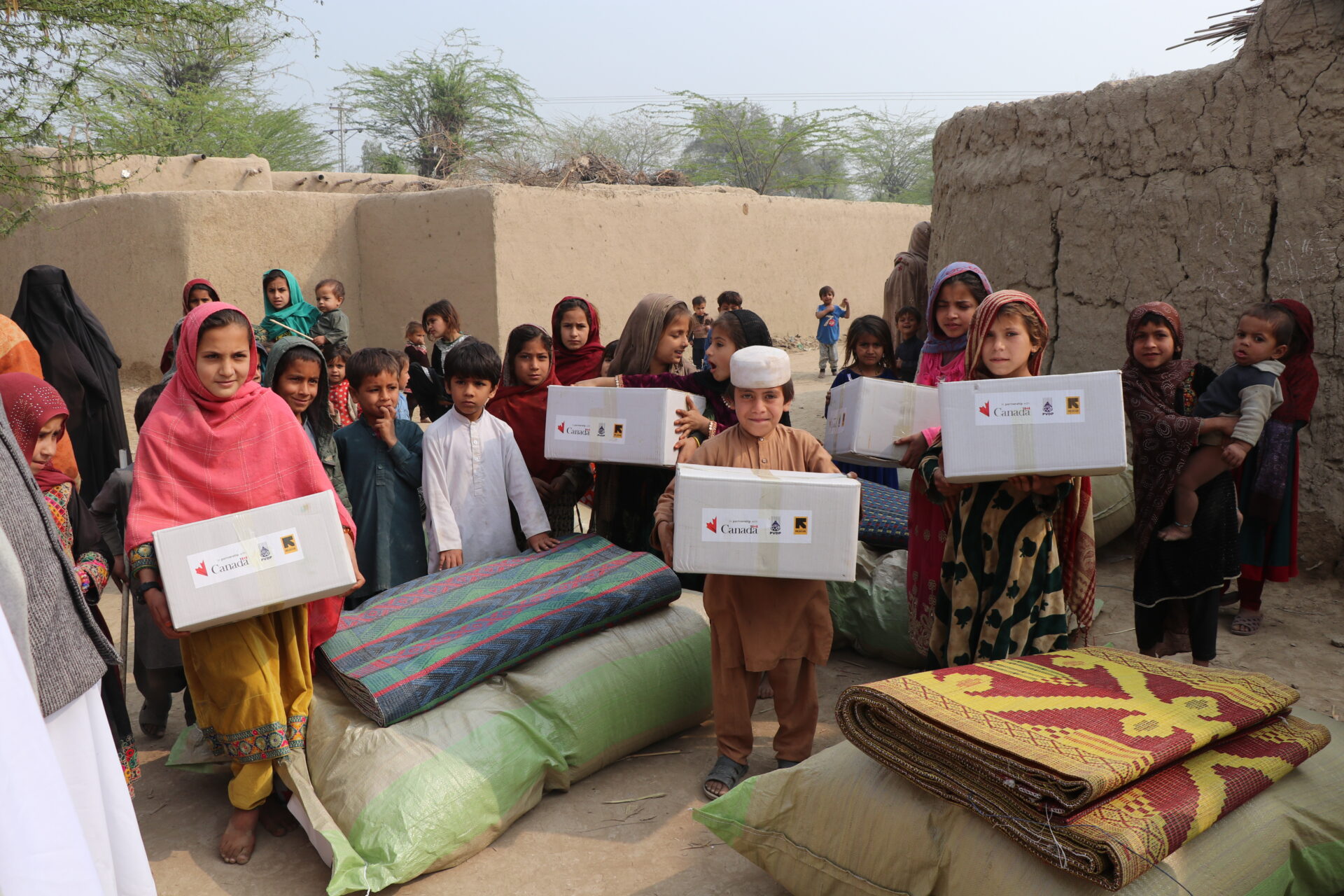ISLAMABAD: As the rehabilitation process after the floods of 2022 is still underway, The International Rescue Committee (IRC) stresses the need to invest in multisectoral inclusive rehabilitation programs that take into account the long-term needs of the flood-affected communities. The IRC foresees that critical gaps in recovery across nutrition and food security, health, shelter, education, and WASH if left unchecked are likely to result in long-term serious consequences for the flood-affected population in particular and Pakistan as a whole.
Since the onset of the floods in July 2022, the IRC has remained active in the flood-affected districts of Balochistan, Khyber Pakhtunkhwa, Punjab, and Sindh provinces. Through efforts geared towards the provision of food baskets, non-food items, safe drinking water, dignity, hygiene, and winterization kits; the establishment of medical camps, and safe spaces; and the conduction of awareness sessions on life skills and psychosocial support the IRC has reached out to approximately 1,224,938 people.
In a press statement the Country Director of IRC, Shabnam Baloch said, “Pakistan is not new to the onslaught of floods but the magnitude of the climate carnage that we witnessed in 2022 is unprecedented. More than seven months after the floods, millions of women, men, and children continue to struggle against hunger and homelessness. Health, education, and social protection services remain disrupted in the majority of the affected areas further placing the lives, livelihoods, and prospects of millions in jeopardy.”
Several months after the climate change-triggered floods devastated three-fourths of Pakistan, an estimated 4.5 million people continue to remain exposed to extreme conditions. As of February 2023, floodwaters were yet to recede from several districts in the south of the country. Some parts of Pakistan have seen people returning to their native lands, however, the conditions that they are returning to are far from welcoming.
While several donor organizations have come forward to support Pakistan in this time of crisis, the overall response by the international community has been lukewarm. As of February 2023, Pakistan had received only 36% of the $871 million from international aid to meet the overall flood response challenge. “Every sector in Pakistan’s flood response plan is currently underfunded,” added Ms. Shabnam. While this poses a challenge on its own, we also need to understand that mere financial resources will not drive Pakistan out of the climate-induced crisis that has arrived on its doorstep. “There is an urgency like never before to invest in interventions that are climate resilient and take heed of the magnitude of the threat that climate change poses to a developing country like Pakistan.”
The Gates Foundation, Foreign, Commonwealth and Development Office (FCDO), European Civil Protection and Humanitarian Aid Operations (ECHO), Swedish International Development Cooperation Agency (SIDA), Dutch Relief Alliance (DRA), Disasters Emergency Committee (DEC), Irish Aid, Malala Fund, UNICEF, IOM, Global Affairs Canada, and German Federal Foreign Office (GFFO) are among the key donors whose support proved instrumental for IRC to commence and sustain efforts in the flood-affected districts.
